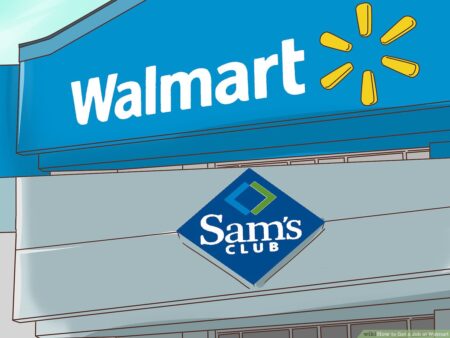If someone you know has a gambling issue, they must receive assistance immediately. Gambling addiction can have serious repercussions for their personal, emotional, and financial well-being as well as mental health problems such as depression or anxiety.
In this article, we will discuss How to Help Someone With a Gambling Addiction. Help them by encouraging them to seek treatment and showing that you care.
1. Encourage them to Seek Help
If your loved one exhibits signs of compulsive gambling, it may be time for professional assistance. Dealing with it alone can be extremely isolating and only serves to compound their issues; furthermore, it could have serious repercussions for relationships involved.
Encourage them to seek assistance for their addiction and explain its effect on you. Provide suggestions of resources available such as state-sponsored services or support groups dedicated to gambling addiction; some specialists accept health insurance while others work on a sliding scale basis.
Try finding healthier alternatives for them, like socializing, exercising and stress relief that doesn’t involve gambling. This will help them feel more productive and fulfilled while decreasing the urge to gamble.
2. Be Patient
Many people enjoy gambling as a recreational pastime without becoming addicted, but compulsive gambling can become an extremely serious problem, leading to lies, theft, bankruptcies and the forfeiture of savings – not to mention missing out on life’s simple pleasures altogether.
Care should be taken when helping someone overcome gambling addiction, or they could become defensive and refuse to talk about their issues with you. Be patient as this will increase their chance of recovery.
At this difficult time, it’s also essential that you take good care of yourself. Engaging in self-care practices and taking some downtime for relaxation can help ensure you remain healthy so you can provide better support to those close to you and maintain strong relationships. Staying busy through activities or friendships may also help alleviate stress.
3. Don’t Make Excuses
People with gambling addiction will often deny having a problem. When discussing it with them, be direct and avoid lectures, accusations or beggaring – if conversation becomes contentious or defensiveness occurs it may be best to end and resume at another time.
At the same time, it’s essential not to cover up their financial issues for them; doing so will undermine their motivation for change and may prompt them to continue gambling as usual. Instead, try supporting them by encouraging them to attend therapy or support groups like GAM-ANON that provide an outlet for sharing feelings and receiving advice from people going through similar circumstances.
4. Stay Away from Casinos
People who gamble compulsively often become involved with the law or develop health issues as a result. Gamblers also tend to end up in debt, leading them down a path toward declaring bankruptcy – it’s essential not to shield loved ones from the natural effects of their gambling addiction.
Help by avoiding their triggers, like driving past casinos on their commute to work or watching sports without changing channels, using online casino games or carrying money around with them when visiting casinos. Limit how much cash or credit cards they carry or even leave them at home when visiting casino venues.
Admitting that you have an addiction problem takes courage, especially if it’s costing money and straining relationships with family and friends. Joining Gam-anon may provide an ideal space to learn about others’ experiences while seeking guidance for recovery.
5. Be Honest
Relationships involving those suffering from gambling addiction can be tricky. Gamblers may hide their behavior or fail to recognize they have an issue, making communication a delicate situation. Being open with loved ones about what’s going on can help reach an understanding of how best to move forward with moving forward; also it is beneficial to gain more information on this condition and its impact.
Set aside time when both parties can speak openly and freely about your gambling concerns. Be prepared to explain how gambling has negatively impacted you and your family and let them know there is professional help available; don’t cover up or bail them out as doing so may only exacerbate their behavior further.
List of Gambling Addiction Treatment Centers
- Algamus Recovery Services. 1616 N. Litchfield Road
- Center of Recovery (CORE) 635 Stoner Avenue. Shreveport,
- Prescott House Gambling Program
- Project Turnabout/Vanguard. 660 18th Street. Granite Falls
- Williamsville Wellness. 10515 Cabaniss Lane.
Gambling Addiction Treatment
Gambling addiction treatment options available to those struggling include outpatient rehab and residential rehab programs.
Gamblers Anonymous can also be an invaluable asset when it comes to recovering from gambling addiction. Some of these self-help groups are free for members to join and open to the public.
Residential Treatment
Gambling addictions can wreak havoc in relationships, threaten jobs and have lasting repercussions for individuals’ personal lives. People suffering from gambling addiction may also suffer other side effects like loss of appetite, insomnia or porn addiction – and gambling addiction treatment centers offer safe and supportive environments to address these concerns while teaching relapse prevention skills and providing tools for financial recovery.
Residential treatment programs for gambling addiction operate similarly to drug and alcohol rehab programs, lasting typically 30 – 90 days and including 24-hour supervision in a secure facility by staff members. Participants receive cognitive behavioral therapy as well as other forms of therapy in order to help them control their behavior and gain control.
Gamblers often experience co-occurring disorders like depression or anxiety that require treatment, food issues or shopping problems and money management difficulties as a result of compulsive gambling. Gambling addiction treatment centers offer services designed to assist these individuals build new and healthy relationships while rebuilding any that were lost while suffering from this disorder.
Outpatient Treatment
Gambling addiction can create significant personal and professional difficulties for its victims, including losing jobs, jeopardizing relationships and experiencing mental health conditions such as depression or anxiety. Furthermore, compulsive gambling may even result in legal or financial ramifications. Inpatient rehab centers offer hope to those addicted to gambling by helping them regain control over their lives and recover from addiction.
Inpatient treatment programs offer intensive therapy and support in a structured facility. Residential treatment may last for up to 90 days and may involve one-on-one and group therapy, psychoeducational groups, alternative therapies such as Reiki or music therapy and more.
Cognitive behavioral therapy can reframe negative self-perceptions about yourself and your behavior, and counter any urges to gamble with facts about the odds of success or failure. Dialectical Behavior Therapy (DBT) helps individuals learn to accept and manage emotions more effectively while interpersonal therapy helps identify interpersonal issues contributing to problem gambling. Medication may also provide relief; studies have revealed certain antidepressant medications like selective serotonin reuptake inhibitors (SSRIs) can reduce pathological gambling in some individuals.
Insurance Coverage
Gambling addiction treatment centers employ various therapeutic approaches. While some specialize in cognitive behavioral therapy, others utilize psychodynamic and interpersonal therapies to address underlying causes for the problem such as emotional trauma, relationship issues, or using gambling as an escape from other life challenges.
Most private health insurance plans, including Preferred Provider Organization (PPO) and Health Savings Accounts (HSA), cover part of the treatment for gambling disorders. Some plans even reimburse patients for mental health counseling sessions as well, though this reimbursement rate may not be as prevalent.
Gambling disorders frequently co-occur with depression or anxiety, or individuals may engage in other risky behaviors like substance abuse or binge eating to cope with their feelings. Inpatient gambling recovery programs provide 24/7 medical staff and intensive treatments as well as aftercare transitional assistance to aid reintegration into everyday life.
Location
Many people struggle with gambling addiction without realizing it, whether consciously or unknowingly. Gambling addiction can lead to emotional stress and financial hardship in relationships and finances; those diagnosed with this disorder also tend to have physical health issues including ulcers and stomach ailments.
Compulsive gambling recovery programs exist and should be utilized, including residential rehab centers which provide a safe haven away from triggers and distractions that allows individuals to focus solely on recovery. Furthermore, such facilities also employ therapeutic techniques like cognitive behavioral therapy (CBT) for treating any issues that contribute to compulsive gambling behavior.
The National Problem Gambling Helpline can connect you with professional therapists. Simply complete our short questionnaire today, and get matched. Please note: we may earn commissions from purchases made via links found here; however, we take your privacy very seriously and encourage reading our disclosure policy before taking any actions.
![Dan Bilzerian Net Worth [Updated]](https://casino-hotspot.com/wp-content/uploads/2024/02/Dan-Bilzerian-Net-Worth-450x338.jpg)





